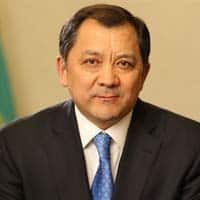Sessions With Nurlan Askarovich Nogayev
Tuesday, 10 March
-
03:50pm - 04:35pm (CST) / -
Plenary - Ministerial Plenary: Challenges for Oil & Gas Producers
Geopolitics/Policy/Regulatory Upstream Oil & GasThe shale revolution, digitalization, and new technologies have created a world of oil and gas abundance. Global supplies, new investments (especially in gas), and current weak demand linked to the coronavirus have driven down oil and gas prices. Increasing international pressures to redress climate change and reduce emissions are also creating competition to become least-cost producers. How are governments rising to these challenges to promote competitiveness? How are they managing the dual challenges of producing energy and reducing emissions? What are the related downstream and power sector implications?
- Speakers:
- Carlos Pascual
- Nurlan Askarovich Nogayev
- H.E. Tarek El Molla

